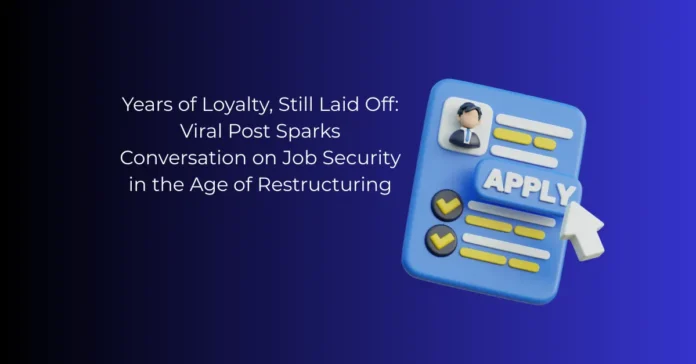A recent viral LinkedIn post by a long-serving engineer who was laid off despite years of loyalty has reignited a pressing conversation: is job security still real in today’s corporate world?
In 2025, mass layoffs aren’t just a tech-sector issue — they’re becoming a systemic challenge across industries. Whether it’s due to AI-led automation, restructuring, or cost-cutting, long-tenured employees are no longer shielded by loyalty alone.
Key insights from the trend:
- 💼 Companies are prioritizing “organizational agility” over tenure, often replacing experienced staff with lower-cost, tech-savvy talent.
- 🤖 The rapid adoption of AI and automation is accelerating skill obsolescence, making “upskilling” more critical than ever.
- 🧠 Emotional impact: Layoffs are hitting mid-career professionals the hardest — leading to rising anxiety, burnout, and decreased trust in leadership.
- 🛡️ HR leaders are now under pressure to improve transparency, offer reskilling options, and rethink performance measurement metrics.
According to a 2025 Gartner report, 64% of HR leaders believe “loyalty-based retention” is no longer a viable strategy. The focus is shifting toward “continuous value alignment” and “future-ready skills.”
🧭 What this means for the HR community:
- Build adaptive workforce plans that support internal mobility.
- Foster a culture of transparency and psychological safety.
- Invest in upskilling and career pathing tools to retain top talent.
- Use data and AI ethically to drive fair, skill-based evaluations.
As painful as these layoff stories are, they’re also a wake-up call: the future of HR lies in agility, not legacy.

